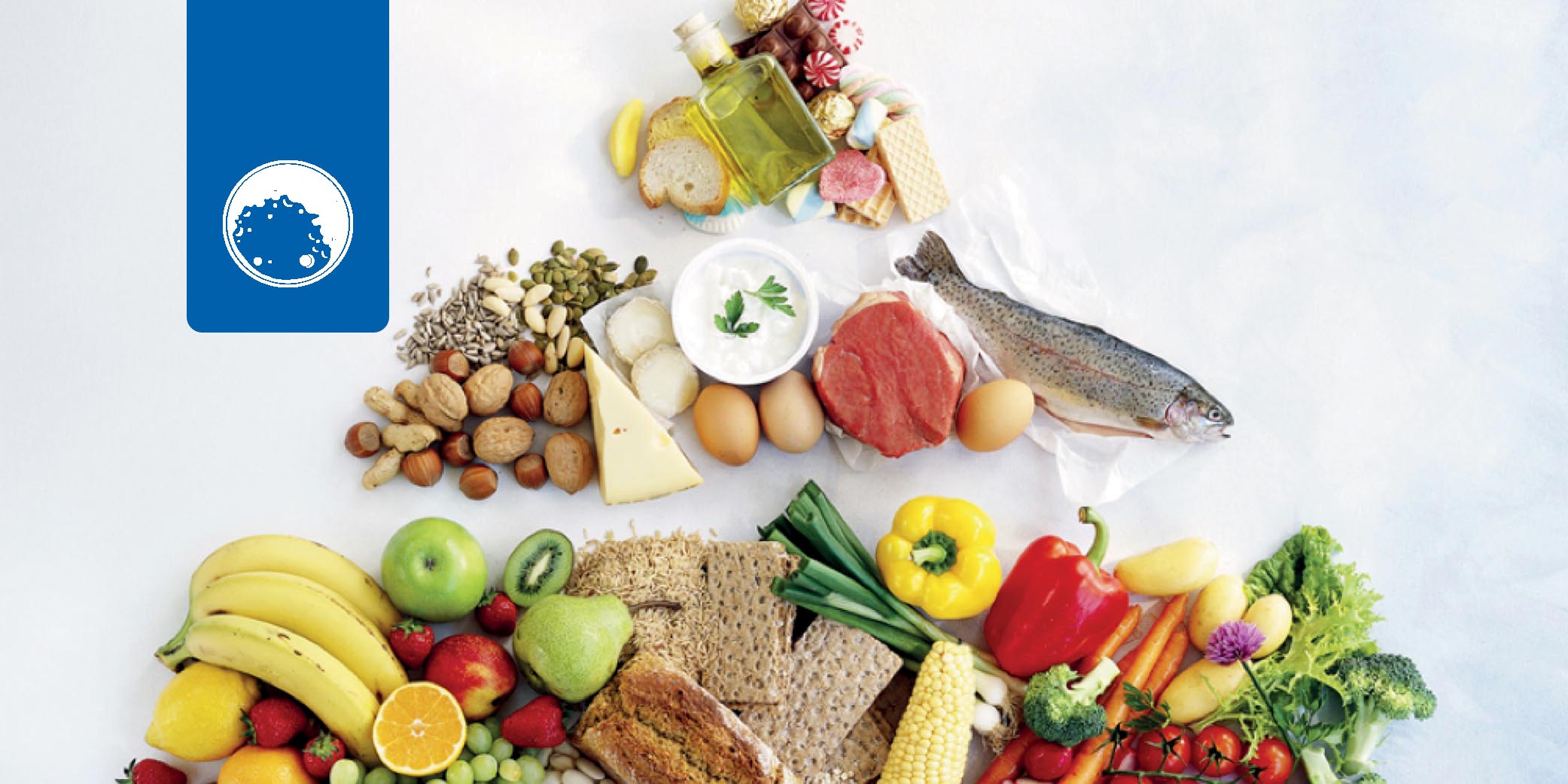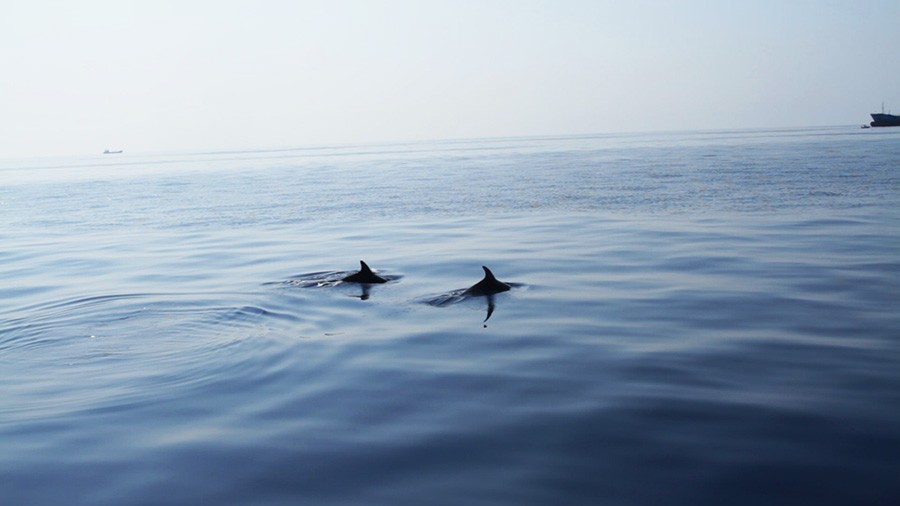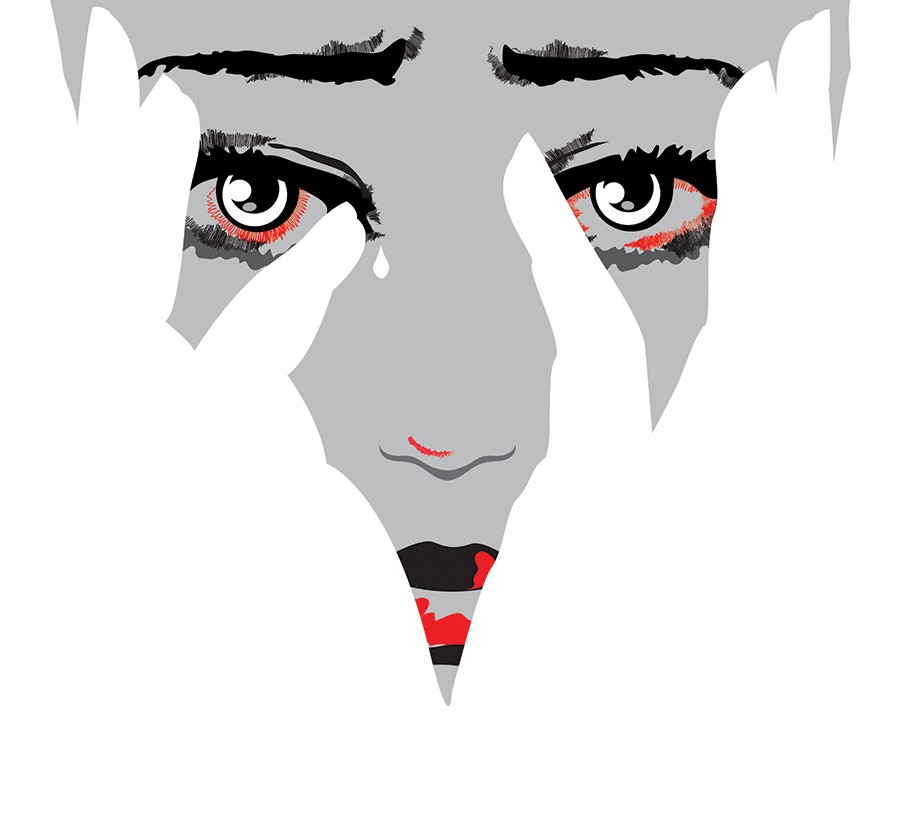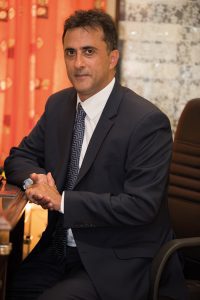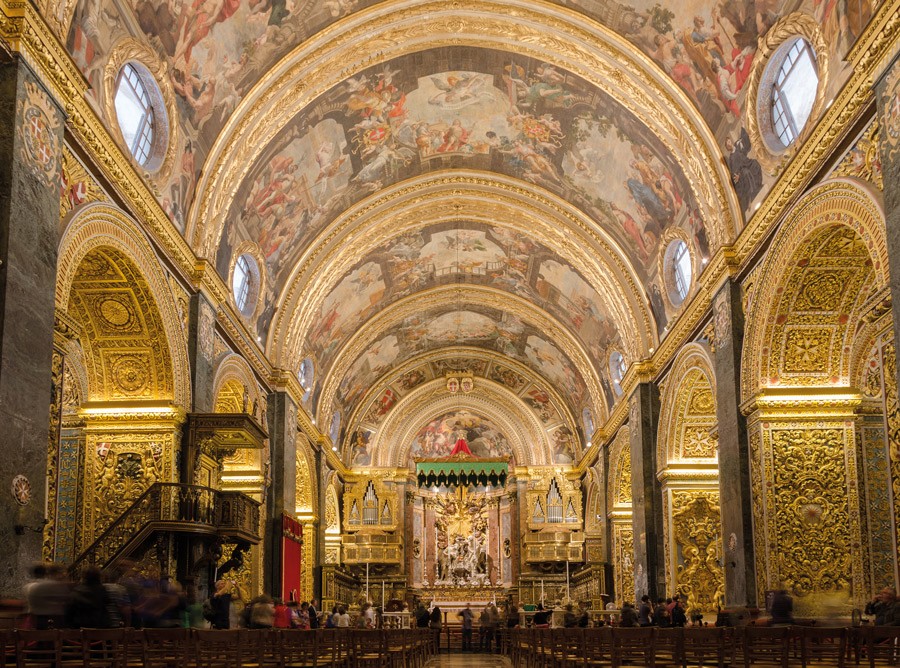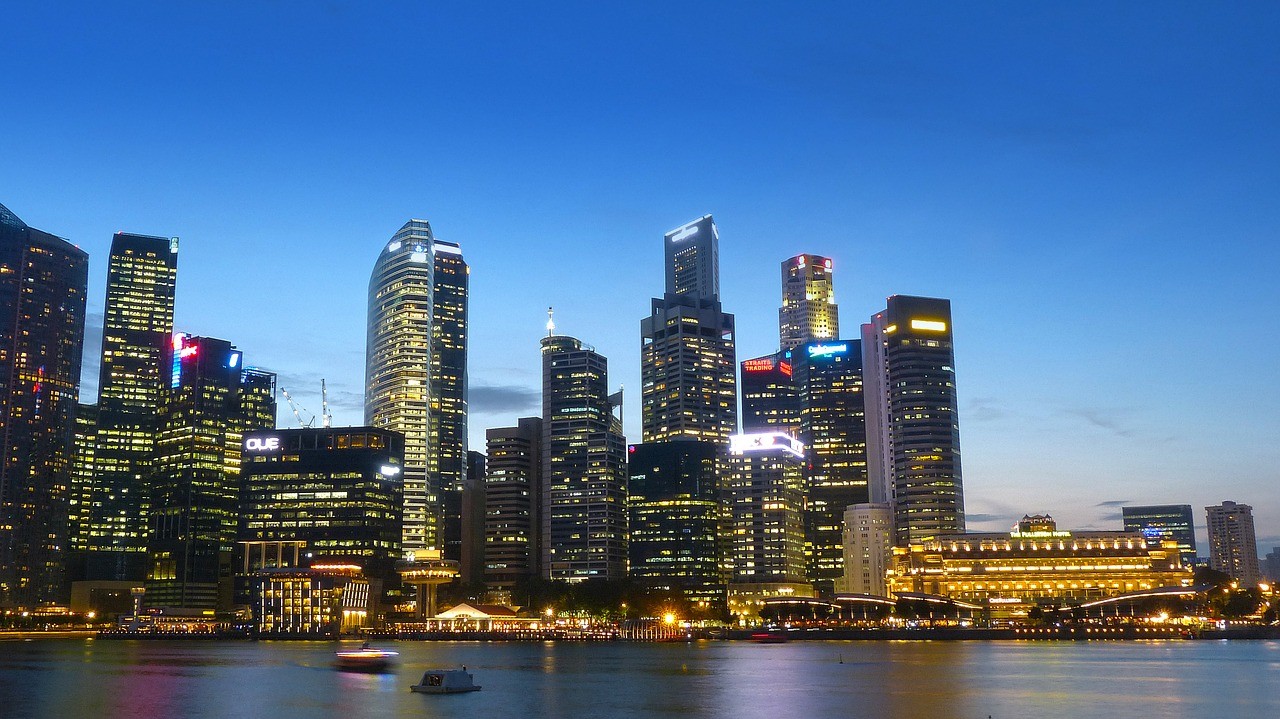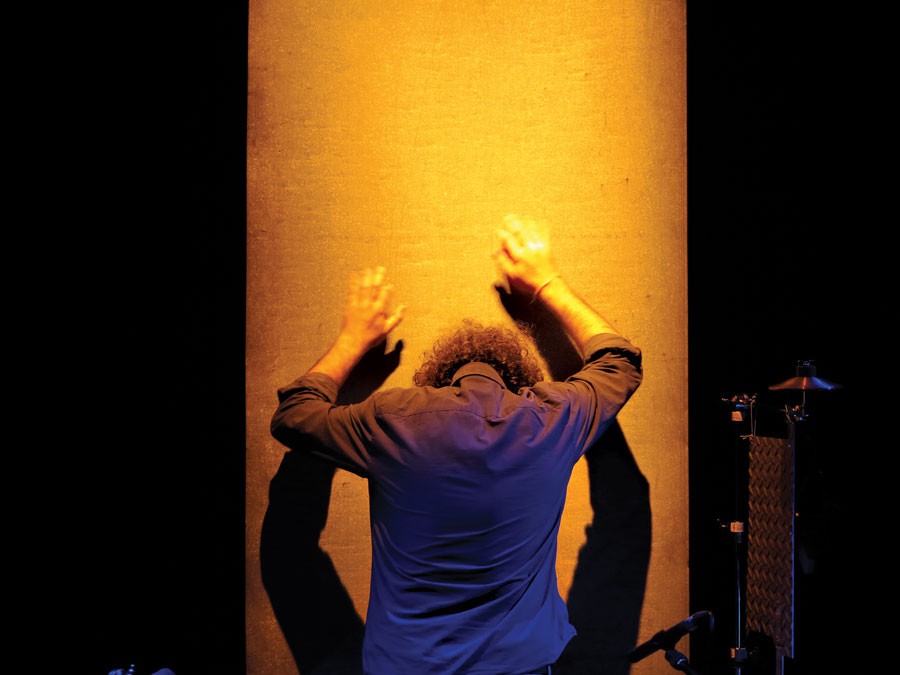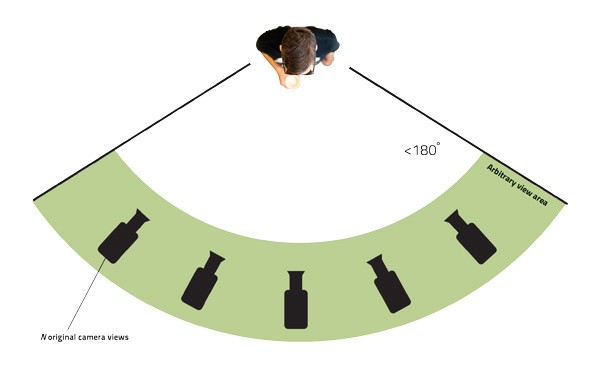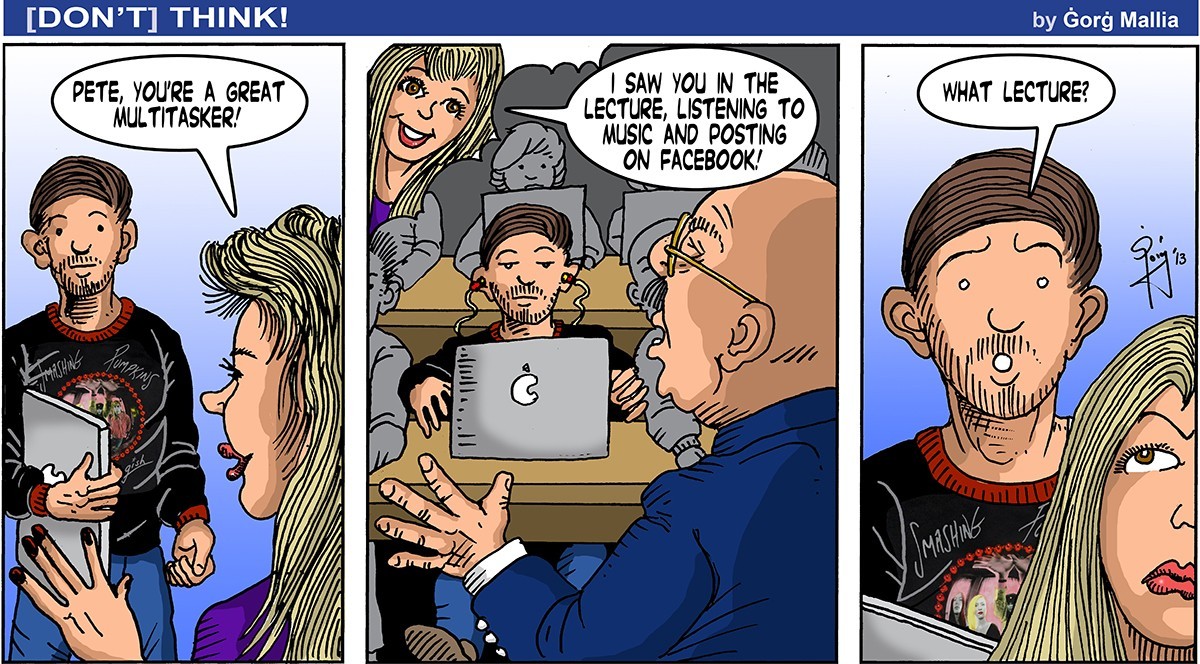Chasing the white whale: the pursuit of sustainable tourism in Malta
EcoMarine Malta’s boat tours are leading the way in environmentally sustainable tourism around the Maltese Islands. Founder Patrizia Patti talks to Edward Thomas about how economic success doesn’t need to be sacrificed in order to protect nature.
Aquarter of Malta’s GDP comes from the tourism industry. It accounts for €2 billion annually and shows no sign of slowing down. Tourist expenditure went up by 13.9% from 2016 to 2017 alone. It constitutes one in every seven jobs in the local economy and maintains a close link to development: better hotels, improved roads, more diverse shops and restaurants. Beyond the economic benefits, tourism promotes and celebrates local customs, food, traditions, and festivals, creating a sense of civic pride.
However, there are concerns. In July and August, Malta, Gozo, and Comino are covered by thousands of holiday-makers flocking in. This is a not only a burden on already strained island resources and infrastructure including water, waste management, and traffic congestion, but it pushes many coastal habitats and aquatic ecosystems to the breaking point, with drastic impacts on local biodiversity.
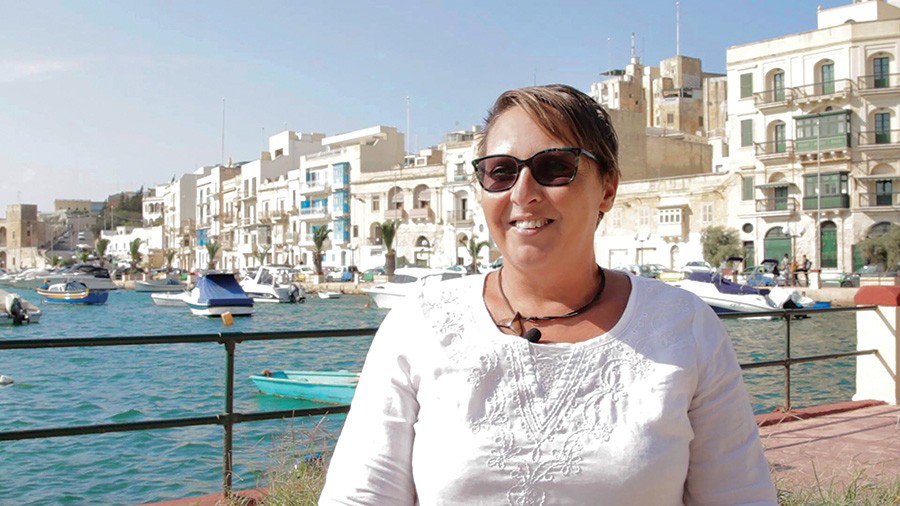
Marine biologist Patrizia Patti laments how ‘people go with speed boats to Comino carrying beers, drinking, throwing bottles into the sea, playing loud music… it disturbs everything.’ If larger tour companies made a small effort to be more responsible, it could have a large effect, she says. ‘Even a simple announcement on a microphone, reminding people they are in a protected area and to behave in a certain way, advising people to respect nature, would help. It’s only a small reminder but it would help a lot.’ Always looking to lead by example, and to show that small actions can have a great impact, Patti set up EcoMarine Malta. The start up organises responsible boat tours around the island, where the international code of conduct is followed and people can experience the joy of encountering dolphins, turtles, and seabirds in their natural habitat.
FACE TO FACE
Patti says their goal is to establish profound personal connections between people and the sea in the hopes that it will change behaviour. She has been passionate about marine biology since the age of 17, when she first encountered a dolphin. That happened during a school trip to an aquarium. She says ‘it was exciting because it was the first time I saw a dolphin, but it was terrible seeing it trapped in a small tank. It made me so sad.’ The emotional response was strong enough to move Patti to tears. ‘It was at that point I decided I wanted to become a marine biologist. I wanted to help.’
Patti went on to study the ecology of sperm whales in the Ligurian Sea before travelling far and wide, gaining experience working with marine mammals in Canada, the Maldives, and the Red Sea. In 2013, she cofounded Costa Balenae Whale and Nature Watching in Italy, a company, like Eco Marine Malta, which strongly focuses on bringing humans closer to marine wildlife, forming lasting memories that inspire them to consider their environmental impact and educating both children and adults about the natural biodiversity of the Mediterranean Sea.
How can you love something and want to protect it when you’ve never seen it?
Seeing these animals and experiencing their natural environment first hand is vital to establishing an emotional bond. This is what then engages people and inspires them to change their behaviour. ‘How can you love something and want to protect it when you’ve never seen it?’ Patti questions. By opening local and tourists’ eyes to the majesty of indigenous species, EcoMarine Malta create compassion and motivate people to take responsibility for the environment too. They also chip away at the sense of helplessness many feel when it comes to ‘actually making a difference.’ EcoMarine Malta provide education and information for their passengers to follow. Patti, who leads the tours herself, goes into how they can enjoy Malta’s beaches responsibly and sustainably, empowering them to take ownership for their actions and decisions before it’s too late.
MONEY PROBLEMS
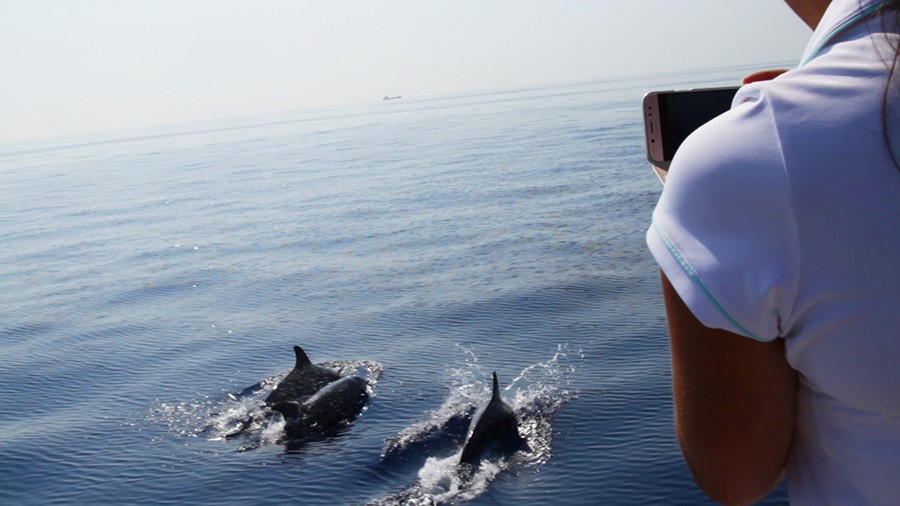
It’s not always been plain sailing for EcoMarine Malta and their boat trips. Patti firmly believes that environmental conservation can be a tool to increase economic growth and employment in Malta. ‘Even if we act like an NGO, we decided to be a private company
because we want to create job places and grow and be able to provide the best service possible,’ Patti says. But not everyone agrees. Patti has received plenty of push back from others in the field as she lobbies for best practices to be enforced around the islands.
Some views are severely narrow and short-sighted, rooted in the belief that any sort of restriction of operations is bad, even if inspired by respect and protection for the natural resources they use. ‘People have to understand that a protected area is to enjoy for a long time. Maybe not now, maybe for one or two years you have to be careful, you can’t do everything you want to do. But after those two years, you can enjoy a new beautiful area, rich in life,’ explains Patti. Setting up EcoMarine Malta as a for-profit enterprise to prove these people wrong, however, has led to another kettle of fish. Because they’re not an NGO, applying for sponsorship and funding is a major challenge. Potential benefactors often dismiss collaboration, telling Patti that the company should be able to support its own endeavours.
This lack of support saw EcoMarine Malta having to rent boats from various charter companies, a massive expense. Externally renting a boat brought with it uncertainty and inflexibility. Last-minute dropouts or weather changes forced them to cancel tours and lose a lot of money. ‘The boat rental still had to paid for,’ she says. But things are looking up. EcoMarine Malta purchased their own boat this summer, and Patti is working hard on getting all the permits in place to have it out on the water as soon as possible. ‘Now we will be able to plan our own routes and diversify the tours we offer. At the moment, we have six tours available to choose from, including a sunset tour when marine life is at its most active,’ she smiles.
GET THEM YOUNG
2018 might be EcoMarine Malta’s first full summer season, but that doesn’t stop Patti from dreaming big about their future. She and her team want to do more outreach and education and are working on offering a series of courses for students aged between 10 and 16 years old. These children will be able to participate in a day of hands-on classroom activities, discovering and learning about sustainability and the ecosystem of the Mediterranean, followed by a boat trip to implement their new knowledge, observing and identifying the variety of wildlife and nature surrounding them and their island. ‘We hope to inspire a whole new generation of marine biologists and environmental scientists,’ Patti says.
With an army of environmentalists in the making, Patti hopes they will take over her role in the future. That would allow her to refocus on a passion she is itching to pick up again: searching for evidence of sperm whales in the Mediterranean surrounding the Maltese Islands. Her eyes light up as she admits to me, ‘I love outreach, but my personal dream is to spot sperm whales in Malta.’ Researchers know that juvenile and female sperm whales in the Atlantic remain in warm waters while the males migrate to the poles to feed, but movements and social dynamics of pods in the Mediterranean are still unclear.
With an army of environmentalists in the making, Patti hopes they will take over her role in the future.
Looking forward, Patti is working hard to establish networks with other entities and NGOs who share the same vision. EcoMarine Malta already collaborates with the likes of Birdlife Malta and has been involved with beach ‘Clean Up’ projects in the past year. Patti asserts that despite everything, ‘the Maltese public and tourists are some of the most enthusiastic and passionate people we’ve worked with so far. It’s great to see people of all ages and backgrounds, coming together to work on a common goal.’
‘Everyone can contribute different things, and together, it adds up to make a big difference.’ Patti is keen to encourage people to help in whatever way they can. To cooperate with others and not feel overwhelmed or alone in their efforts. ‘It’s not possible to do it alone. We need to work together, holistically, caring about the land, sea, and air, to protect the island’s environment.
For more information visit: ecomarinemalta.com.mt
Further reading:
Briguglio, L. (2008). Turismo sostenible en jurisdicciones de islas pequeñas con especial referencia a Malta. ARA: Revista de Investigación En Turismo, 1(1), 29–39. Retrieved from http://revistes.ub.edu/index. php/ara/article/view/18966
Croes, R., Ridderstaat, J., & van Niekerk, M. (2018). Connecting quality of life, tourism specialization, and economic growth in small island destinations: The case of Malta. Tourism Management, 65, 212–223. http://doi.org/10.1016/j. tourman.2017.10.010
Markwick, M. (2018). Valletta ECoC 2018 and cultural tourism development. Journal of Tourism and Cultural Change, 16(3), 286–308. http://doi.org/10.108 0/14766825.2017.1293674
Author: Edward Thomas
Domestic violence is no longer a private matter
Domestic violence is a social issue scarring our communities. It is also on the rise. According to the CrimeMalta Annual Crime Review for 2016, there were ‘only’ 450 reports in 2008 compared to the 1272 instances in 2016, marking a jump of 183%.
Paradoxically, increasing reports of domestic violence are a good sign. They clearly indicate that people are more aware of domestic violence, that they recognise it, and find it unacceptable. Another positive is that the media is highlighting these cases. Domestic violence against women also has a lasting impact on children. Once exposed to intimate partner violence, the ramifications ripple through their lives both in the short term and when they become adults (Sammut Scerri, 2015).
According to the European Union Agency for Fundamental Rights, one in three European women experience physical and/or sexual violence by a partner. In Malta 15% of women over the age of 15 have experienced physical and/or sexual violence at the hands of a partner. Looking at the National Prevalence Study conducted in 2011 by the Commission for Domestic Violence, 26.5% of women have experienced one or more acts of violence by a partner, which includes, physical, emotional, or sexual violence. Probably one of the most worrying facts, according to the same study, is that 54% of women who have experienced violence did not seek assistance. Domestic violence significantly impacts female survivors who are low income, unemployed, or inactive.
Malta has to act, and the Faculty for Social Wellbeing (University of Malta) has already recommended a number of action points. First on the list is a one-stop-shop with a multidisciplinary response team, specially trained to address the situation holistically. This team involves police working with legal, social work, health, and psychological support. We also suggested a well–resourced National Action Plan, in-line with the Istanbul Convention, that is comprehensive and evidence-based. This would work hand in hand with a national programme on relationship education, targeting different age groups and genders, addressing gender stereotypes and issues around power and control. We also believe that court sentencing needs to be significantly harsher to reflect the seriousness of the crimes. Similarly, protection orders and treatment orders need to lead to significant punishments if broken. Finally, we must also work to alleviate the financial burden of domestic violence victims. Social assistance cheques have to be issued promptly, social housing must be made available, and child support contributions cannot be interrupted.
Domestic violence is no longer a private matter, but a community responsibility. For the good of everyone, it is an issue that needs to be addressed by academia, civil society, and the state in a coherent and well thought-out manner.
Author: Prof. Andrew Azzopardi
Further reading:
Sammut Scerri, C., Living with contradictions of love and violence: A grounded theory study of women’s understanding of their childhood experiences of domestic violence, Doctoral dissertation, University of Surrey, 2015.
http://crimemalta.com/documents/CrimeMalta_Annual_Report_SF_2016.pdf
That amazing Baroque world
The Baroque period was a time of great upheaval. Monarchs believed in the divine right to rule, a notion continuously threatened by the relentless spread of the Ottoman Empire. Civilisations clashed like never before, opposing religious ideals stoking that vicious fire. Curiously, this was also the age when science, technology, and art were making their own grand strides. The cannon and the musket altered military landscapes. The studies of Descartes, Kepler, and Newton revolutionised thought. Borromini, Bernini, Guarini, and Caravaggio altered the artistic world.
What can Malta learn from Singapore?
By Dr Andre Xuereb and Dr Edward Duca
Singapore is Asia’s success story. It has a landmass just over twice that of Malta but produces over 30 times its economic output. Singapore has invested heavily in quantum technologies, turning itself into one of the world’s leading industrial economies. Though poor in natural resources, Singapore’s investment in knowledge has resulted in it becoming one of the world’s healthiest industrial economies.Continue reading
Sound, reading and a fishing line
Is new tech killing social interaction?
by Matthew Cesareo from the Gadgets team
27th Passenger
I thought I hated deduction games. A friend of mine had purchased The Resistance and we played it till kingdom come. Everyone loved it, except me. It was too much a social exercise and too little a game. This is not necessarily bad, it just made the game extremely different with different groups, and it didn’t work with some of them. I assumed that this was true for all deduction games; 27th Passenger proved me wrong. 27th Passenger is about a group of assassins on a train. They all want to kill each other, but not the civilians. Of course, all players have a disguise ranging from a tough gangster to a sweeter schoolgirl.Continue reading
Making 3D multi-view TV a reality
Research in 3DTV has been active for the past decades. Its popularity is growing rapidly driven by market forces and new technologies that are bringing down costs enabling a more widespread distribution. Normal 3D video uses only one camera to generate two video streams for each eye. Multi-view video allows the viewer to choose which angle they want to watch (pictured).
Multi-view video needs to process huge amounts of data since it needs to transmit many different camera angles of the same scene. If the 3D videos are being streamed in real time, the processing power needs grow even further. To reduce computer processing the multi-view plus depth concept was introduced. Using this idea not all the alternative videos are used. Instead a few are selected and the angles in between are filled using sophisticated computer algorithms. The challenge with this approach is to generate high quality videos at different angles whilst keeping the amount of data transmitted as low as possible.
To attempt to overcome these problems, Maverick Hili (supervised by Dr Ing. Reuben Farrugia) analysed the current state-of-the-art video coding standard called H.264. The idea is to compress the amount of data which is transmitted without losing video quality. To achieve a better compression, the depth information in a video was represented with a few parameters. The receiver then has to use these parameters to reconstruct the original depth information. Hili managed to improve compression using this technique, an important step to be able to stream live 3D video into our homes.
This research was performed as part of Masters in Telecommunications within the Faculty of ICT at the University of Malta. It was partially funded by the Strategic Educational Pathways Scholarship (Malta). This Scholarship is part-financed by the European Union — European Social Fund (ESF) under Operational Programme II — Cohesion Policy 2007–2013, “Empowering People for More Jobs and a Better Quality Of Life”.

